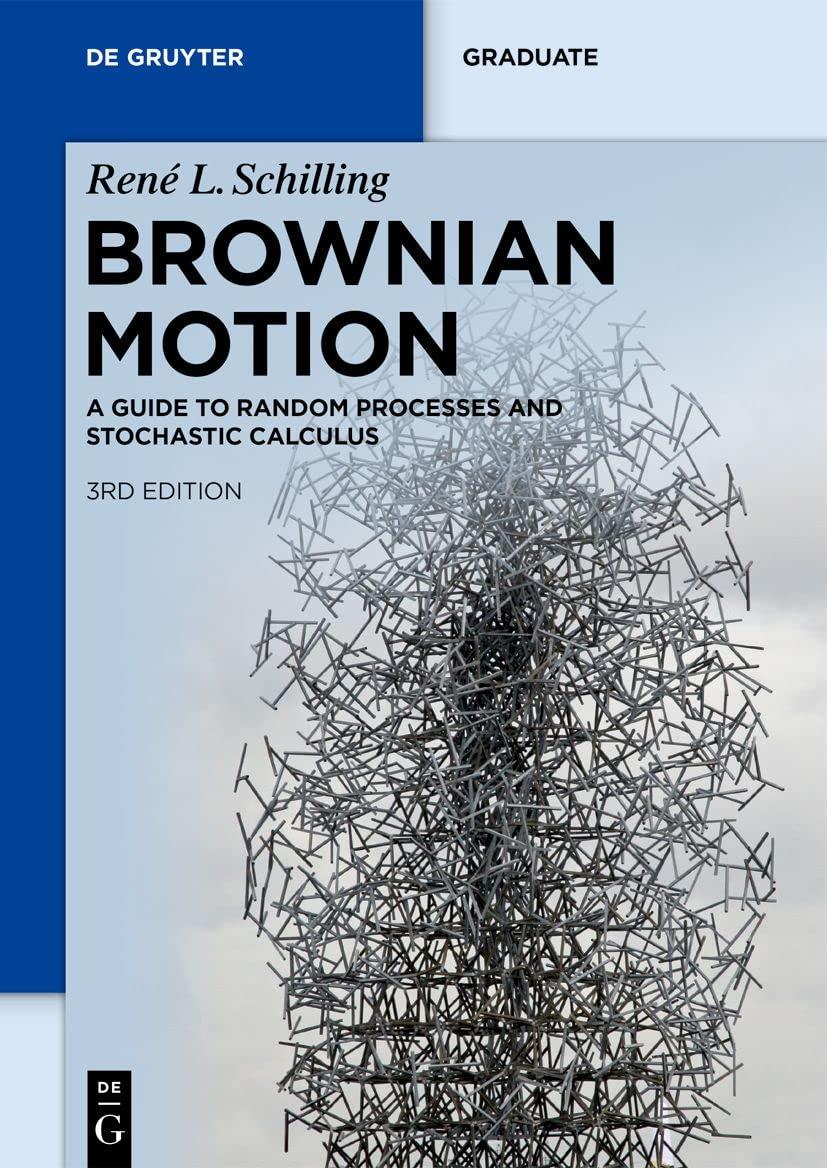Fractional Brownian motion (fBM, (alpha)-fBM) (left(B_{t}^{alpha}ight)_{t in mathbb{R}}) with Hurst index (H=alpha / 2 in(0,1]) is a
Question:
Fractional Brownian motion (fBM, \(\alpha\)-fBM) \(\left(B_{t}^{\alpha}ight)_{t \in \mathbb{R}}\) with Hurst index \(H=\alpha / 2 \in(0,1]\) is a Gaussian process with the following mean and covariance structure
\[\mathbb{E} B_{t}^{\alpha}=0 \quad \text { and } \quad \mathbb{E} B_{s}^{\alpha} B_{t}^{\alpha}=\frac{1}{2}\left(|s|^{\alpha}+|t|^{\alpha}-|s-t|^{\alpha}ight) .\]
Alternatively one can require that
\[\mathbb{E} B_{t}^{\alpha}=0, \quad B_{0}^{\alpha}=0 \quad \text { and } \quad \mathbb{E}\left[\left(B_{s}^{\alpha}-B_{t}^{\alpha}ight)^{2}ight]=|s-t|^{\alpha} .\]
a) Check the equivalence of the two definitions for a fBM.
b) Show that fBM exists, i.e. find the probability distribution of \(\left(B_{t_{1}}^{\alpha}, \ldots, B_{t_{n}}^{\alpha}ight)\).
c) Identify the processes relating to the particular cases \(\alpha=1\) and \(\alpha=2\).
d) Show that an \(\alpha\)-fBM is \(H\)-self-similar, i.e. \(W_{t}^{\alpha}:=c^{-H} B_{c t}^{\alpha}, t \geqslant 0\), defines for each \(c>0\) an \(\alpha\)-fBM.
e) Show that fBM has stationary increments.
f) Show that for \(\alpha eq 1\) the increments are dependent
Step by Step Answer:

Brownian Motion A Guide To Random Processes And Stochastic Calculus De Gruyter Textbook
ISBN: 9783110741254
3rd Edition
Authors: René L. Schilling, Björn Böttcher





